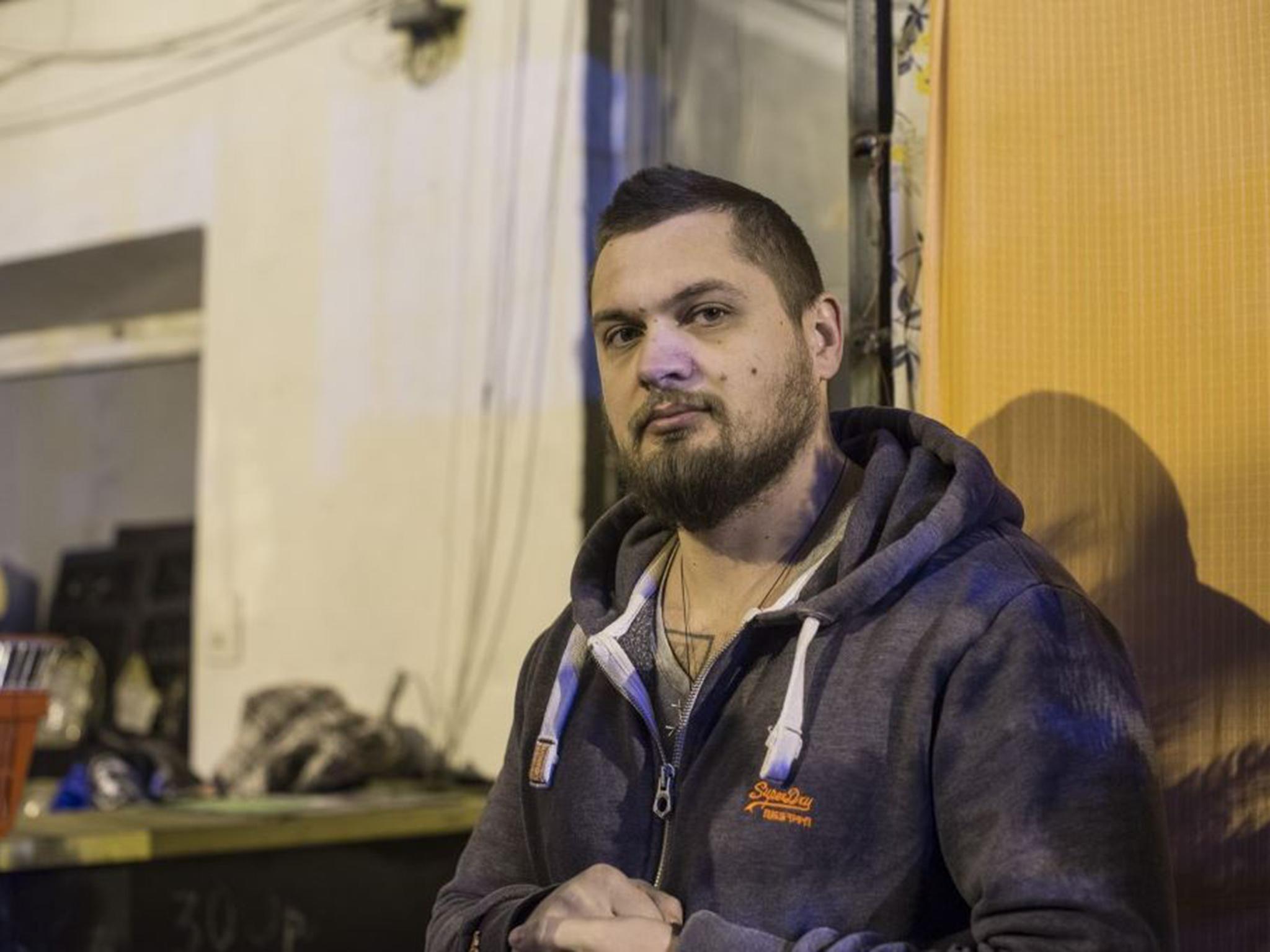The Moscow flea market where frustrated Russians can pay to destroy useless junk
'It's fun to watch what happens when you say to a person, you can do whatever you want'

Alexei Barinskiy had two problems that sooner or later most of us have. But he found a solution that few of us would. And along the way, he created a small business, a charity, and a space where stressed out Muscovites can take out there aggression harmlessly, legally and violently.
It started in mid-2014, when Barinskiy, who works at a Russian IT company, had a two-hour meeting with “a really annoying co-worker.” Afterwards, he was so stressed out that he was telling a colleague over lunch, “I would give everything in my pocket to turn this entire restaurant upside down.”
The second problem came in 2015, when Barinskiy and his wife, Irina, were planning a big move and struggled to get rid of their unneeded junk: old bicycles, clothing, furniture and various trinkets.
“It was a nightmare,” Barinskiy, 33, recalled recently in nearly flawless English. “So we decided to make a service that comes by your house, takes everything that you don't need anymore, pays you a bit of money, brings it here, sells to customers, and then transfers most of the money to charity.”
By “here,” he means Svalka, a sprawling industrial space that was once the production facility of a top-secret Soviet defense factory, which he and and a couple of co-founders turned into a massive garage sale.
Under a faded red banner that once urged Soviet workers “to work efficiently and produce quality,” a dozen of Barinskiy's employees sort clothing, furniture, office goods, and oddities such as an old wooden portrait of Josef Stalin, and a life-size carousel with painted ponies. (“Make me an offer,” Barinskiy said during a recent tour of the space.)
He reckoned that in over a little more than a year, Svalka has raised about $15,000; he sends it all to dobro.mail.ru, a crowdfunding charity that according to its website has supported more than 141,000 projects, such as bringing food to the needy and establishing a garden for an orphanage where children can learn to grow vegetables.

But some of the stuff Svalka receives is junk no one wants.
“We needed some way to convert it into money,” Barinskiy said. At some point, he remembered wanting to trash that restaurant, and the idea for a second business in the space same was born. This is Debosh, “debauch,” in English.
Clients pay a price to reserve a room, starting at about $140, for Barinskiy's people to fill up with junk for them to destroy. (The cost depends on how elaborately the room is designed; a popular choice is a replica of the office where the customers work.)
Deboch customers have to wear helmets and safety glasses, and they aren't allowed to hurt each other, but otherwise, anything goes. Svalka staff members supply sledge hammers, close the door, turn up the music and let the clients whale.
“People need someplace to blow off steam; it's better in a space where it's allowed,” explained Lesya Ryabtseva, whose job title at Deboch translates to “steam blowing-off specialist.”
“It's fun to watch what happens when you say to a person, you can do whatever you want,” she said.
Barinskiy sees his venture as a way to do something positive in a society where the political system is controlled by the Kremlin and non-governmental civil society institutions are hanging by a thread.
“It is one's choice to be beaten down or do something about it,” he said.
He led the way up a metal staircase to a staging area, located in a small room overlooking the production floor, where customers of Deboch don their protective gear. There, he slid down a firehouse pole, The Post followed, and Barinskiy led the way to a room that had been decorated especially for an American reporter.
It was a replica of a polling place, complete with a ballot box and red-white-and-blue posters marked with slogans used by Donald Trump and Hillary Clinton. With Moscow so interested in the result that the Obama administration accused the Kremlin of meddling in the vote, Russians were bombarded with often-skewed coverage of the campaign by the state-run media.
“We enjoyed the American election,” Barinskiy said, as he and another employee, Alan Tigiev, lifted their sledgehammers menacingly. “Maybe too much.”
He aimed his hammer like a spear and fired it at the ballot box, knocking it over.
The stress relief had begun.
Washington Post
Join our commenting forum
Join thought-provoking conversations, follow other Independent readers and see their replies
Comments
Bookmark popover
Removed from bookmarks